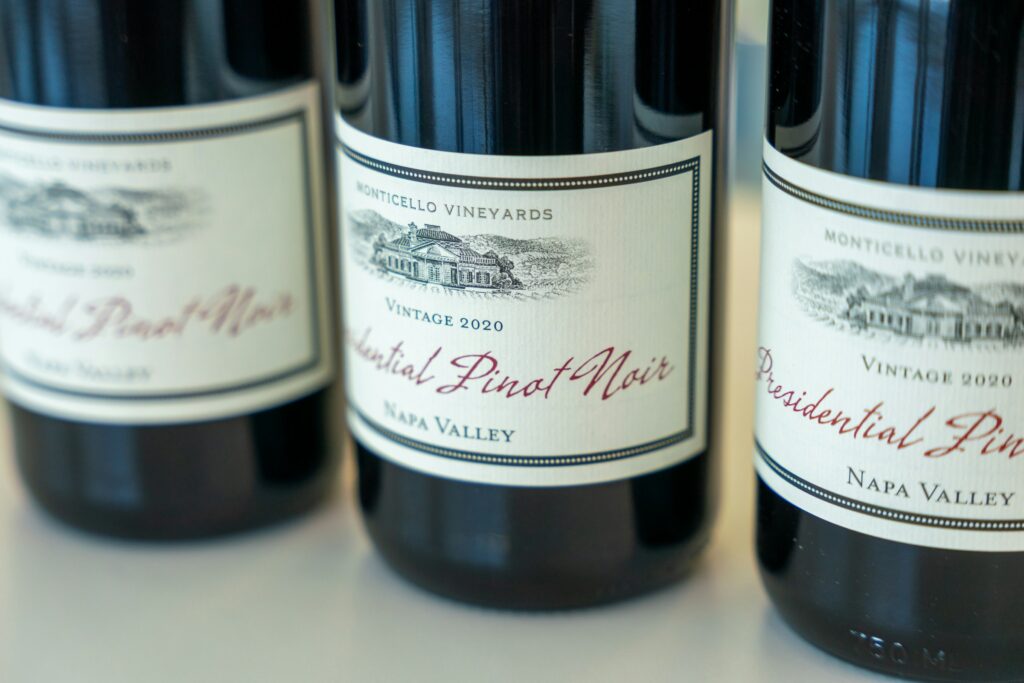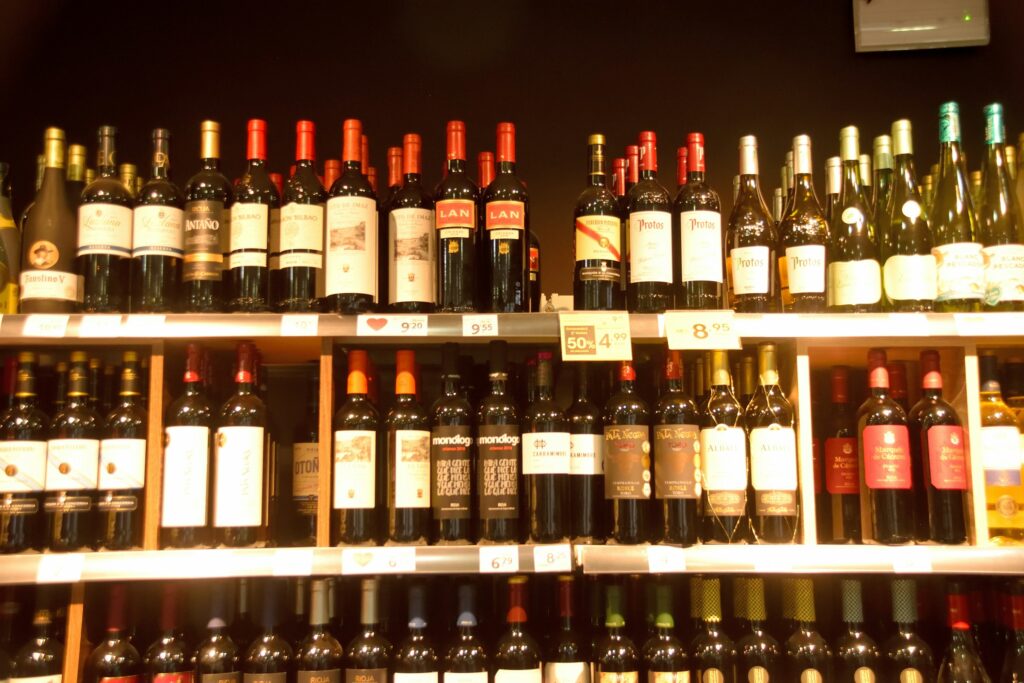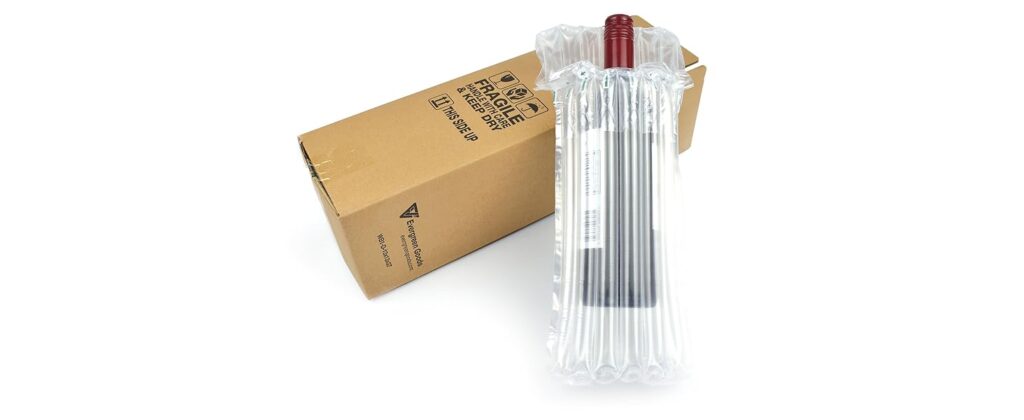
Are you a Nigerian living in the United States and looking for a way to build a business back home without leaving your job or moving back permanently? The wine import business is one of the most profitable ventures Nigerians in diaspora can start, connecting American suppliers with Nigeria’s growing market of wine drinkers who are willing to pay premium prices for quality products.
Wine consumption in Nigeria is growing among middle and upper-class Nigerians, corporate events, hotels, and restaurants. The profit margins of selling wines imported to Nigeria are attractive. With proper planning and the right partnerships, you can run this business from the USA while your team in Nigeria handles distribution and customer service. This guide provides 7 steps to start and run a profitable wine import business from the USA to Nigeria, covering everything from US export regulations to Nigerian customs requirements, pricing strategies, and building your customer base.
1. Understanding the Wine Import Business Opportunity
The wine import business from the USA to Nigeria offers unique advantages that few other businesses can match. You’re positioned in a country with some of the world’s best wines at competitive prices, and you’re connected to a market where those same wines sell for 3-5 times the price you paid. This price difference isn’t just profit potential – it’s a clear market signal that demand exists and customers are willing to pay.
Nigeria’s wine market has grown significantly over the past decade. According to market research, Nigerians now consume millions of liters of wine annually, with imported wines dominating the premium segment. The typical wine drinkers in Nigeria include corporate professionals, business owners, expatriates, event planners, hotels, restaurants, and affluent Nigerians who associate wine with sophistication and celebration.
What makes this business particularly attractive for Nigerians in the USA is the low startup cost compared to other import businesses. You don’t need a warehouse in America or expensive inventory upfront. You can start by importing small quantities, testing the market, building relationships with buyers, then scaling up as demand grows. Many successful wine importers started with just 50-100 bottles in their first shipment.
Market Segments You Can Serve:
- Corporate Events: Companies buying wine for staff parties, client entertainment, and corporate gifts
- Hotels and Restaurants: Establishments that need regular supply of quality wines for their menus
- Retail Wine Shops: Stores that sell premium imported wines to individual customers
- Private Clients: Affluent individuals buying for personal consumption, parties, and weddings
- Online Customers: Nigerians ordering wine through social media and e-commerce platforms
The beauty of the wine import business is that once you establish reliable suppliers in the USA and distribution partners in Nigeria, the business can run semi-automatically. You coordinate shipments, manage orders, and handle finances while your team in Nigeria does the physical distribution and customer service.
Profit margins in wine importing typically range from 100% to 300% depending on the wine type, shipping method, and your target market. A bottle you buy for $10 in the USA might cost another $8-12 to ship and clear through customs, bringing your total cost to $18-22. That same bottle retails in Nigeria for $35-60, giving you healthy profit margins even after accounting for all expenses and risks.
2. Legal Requirements: US Export Regulations and Licenses
Before you ship your first bottle, you must understand and comply with US alcohol export regulations. The United States takes alcohol exports seriously, and violations can result in heavy fines, license revocation, or even criminal charges. The good news is that the process is straightforward once you know the requirements.
According to the Alcohol and Tobacco Tax and Trade Bureau (TTB), anyone exporting alcoholic beverages from the United States must follow federal and state regulations. For wine exports, you need to work within the legal framework that governs alcohol shipments internationally.
Key US Requirements for Wine Exporters
Federal Basic Permit
If you plan to export wine regularly as a business, you may need a Federal Basic Permit from the TTB. This permit authorizes you to deal in wine for export purposes. The application process involves submitting detailed information about your business, ownership structure, and intended export activities. Processing can take 90-120 days, so apply early.
State Licensing
Each US state has its own alcohol laws. Some states allow individuals to purchase and export wine without special licenses if it’s for commercial export (not for personal consumption). Other states require specific export licenses. Check with your state’s alcohol control board to understand local requirements. States like California, New York, and Texas have relatively export-friendly regulations.
Export Documentation
When shipping wine internationally, you need proper documentation including commercial invoices, packing lists, and export declarations. These documents prove that your shipment is legitimate commercial trade, not illegal alcohol smuggling.
Certificate of Origin (if required)
Some countries, including Nigeria, may require certificates proving where the wine was produced. According to the [TTB’s Certificate Requirements](https://www.ttb.gov/import-export/itd/importing-bottled-alcohol-beverages-into-the-united-states), certain wines need age or origin certificates. While this requirement primarily applies to imports into the US, familiarize yourself with documentation standards as Nigerian customs may request similar proof.
Work with Licensed Freight Forwarders
The easiest way to ensure compliance is to work with freight forwarding companies that specialize in alcohol shipments. These companies know all the regulations, handle paperwork, and ensure your shipment meets both US export and Nigerian import requirements. Companies like DHL, FedEx Trade Networks, and specialized alcohol shippers can manage the entire process for a fee.
Important Restrictions
- You cannot ship alcohol through regular US Postal Service (USPS) – it’s illegal
- Personal shipments of alcohol across state lines and internationally face strict restrictions
- Always declare alcohol shipments honestly – hiding alcohol in packages is a federal crime
- Keep detailed records of all purchases, shipments, and sales for tax and legal purposes
The legal landscape can seem complicated, but thousands of small businesses successfully export wine from the USA every day. Start small, work with professionals, and build your knowledge as your wine import business grows.
3. Nigerian Import Requirements: NAFDAC, Customs, and Duties
Getting your wine into Nigeria legally requires understanding Nigerian import regulations, which are primarily managed by three government agencies: Nigeria Customs Service, NAFDAC (National Agency for Food and Drug Administration and Control), and the Standards Organization of Nigeria (SON).
According to the U.S. International Trade Administration, Nigeria maintains high import duties on alcohol products, with effective duty rates ranging from 75% to 95% on imported wines and spirits. These high duties are designed to discourage alcohol imports and protect local beverage industries, but they also mean that imported wines command premium prices in the Nigerian market.
NAFDAC Registration
Every food and beverage product entering Nigeria must be registered with NAFDAC. For imported wines, this means each brand and product variation needs its own NAFDAC number. The registration process involves:
- Submitting product samples for laboratory testing
- Providing certificates of analysis from the country of origin
- Paying registration fees
- Obtaining NAFDAC approval before commercial importation
Many wine importers work with NAFDAC consultants in Nigeria who handle the registration process for a fee. This speeds up approval and reduces the risk of application rejection. Once registered, your NAFDAC number remains valid for several years but must be renewed periodically.
Required Import Documents:
- Commercial invoice showing wine details, quantities, and values
- Packing list describing how items are packaged
- Bill of Lading or Airway Bill from your shipping company
- NAFDAC registration certificates for all products
- Certificate of Origin from the USA
- Import permit (if required for your product category)
- Valid business registration documents (CAC certificate)
- Tax Identification Number (TIN)
Customs Clearing Process
Most wine importers hire licensed customs agents (popularly known as clearing agents) who specialize in beverage imports. These agents understand the complex paperwork, have relationships with customs officials, and can navigate the clearing process efficiently. Expect to pay agent fees which depends on shipment size and complexity.
The entire customs clearing process typically takes 3-7 days for shipments that have proper documentation. Delays happen when paperwork is incomplete, when customs wants to physically inspect your shipment, or during periods of port congestion.
Important Compliance Notes
- Nigerian import prohibition lists does not include wine, so importation of wine is legal with proper documentation
- Under-declaring shipment values to reduce duties is illegal and risky – if caught, your shipment can be seized and you face fines
- Keep all import records for at least 5 years for tax and audit purposes
- Duty rates and policies can change, so stay updated through customs brokers and trade associations
Working with experienced clearing agents and NAFDAC consultants is worth the investment, especially when starting your wine import business. Their expertise saves you time, money, and frustration while ensuring full legal compliance.

4. Sourcing Wine in the USA: Finding Reliable Suppliers
Your success in the wine import business depends heavily on finding reliable, cost-effective wine suppliers in the United States. You need suppliers who offer quality products at competitive prices, can provide proper export documentation, and are willing to work with a small-scale international buyer as you start out.
Types of Wine Suppliers You Can Work With
Wholesale Wine Distributors
These companies supply wine to restaurants, hotels, and retailers. They buy directly from wineries and vineyards, offering better prices than retail stores. Many wholesale distributors are open to export sales if you have proper documentation and licensing. Search for “wholesale wine distributors” in your city or state.
Wine Warehouses and Discount Stores
Stores like Total Wine, BevMo, Costco, and Sam’s Club offer competitive prices on popular wine brands. While they primarily serve retail customers, you can purchase in quantity for export. Some locations have business membership programs that offer additional discounts.
Direct from Wineries
California, Oregon, Washington, and New York have thousands of wineries that sell directly to buyers. Buying direct from wineries often gives you better prices and access to unique wines not available through distributors. Many wineries are export-friendly and can provide the certificates and documentation you need.
What to Look for in Suppliers:
- Competitive pricing that allows you to make profit after shipping and duties
- Willingness to provide commercial invoices and export documentation
- Quality wines that appeal to Nigerian customers (popular brands, good reviews)
- Reliability in fulfilling orders and maintaining stock
- Understanding of export requirements or willingness to learn
- Flexible minimum order quantities for small businesses
Popular Wine Categories for Nigerian Market
– Red wines (Cabernet Sauvignon, Merlot, Pinot Noir) – most popular in Nigeria
– White wines (Chardonnay, Sauvignon Blanc, Moscato) – growing demand
– Sparkling wines (Champagne, Prosecco) – high demand for events and celebrations
– Rosé wines – increasingly popular among younger Nigerian wine drinkers
– Dessert wines – niche market but good profit margins
Start with well-known brands that Nigerian customers recognize and trust. Names like Barefoot, Yellow Tail, Kendall-Jackson, and Robert Mondavi sell well because customers have heard of them. As you build your reputation, you can introduce premium and boutique wines with higher profit margins.
Building Supplier Relationships
Visit suppliers in person when possible. Explain that you’re starting a wine export business to Nigeria and ask about their export policies. Many suppliers appreciate honest, straightforward communication and will work with you if they see you’re serious about building a legitimate business.
Get business cards, ask questions about bulk pricing, delivery schedules, and return policies. Build relationships with 2-3 reliable suppliers rather than constantly shopping around for the cheapest price. Reliable suppliers become valuable partners as your wine import business grows.

5. Shipping Methods: Air Freight vs. Sea Freight
Choosing the right shipping method significantly impacts your costs, delivery speed, and product quality in your wine import business. You have two main options: air freight and sea freight, each with distinct advantages and disadvantages.
Air Freight is the fastest but most expensive shipping method. Your wine shipment can arrive in Nigeria within 5-10 days from the US, depending on flight availability and customs processing.
Advantages of Air Freight
- Speed: Quick delivery means you can turn inventory faster
- Less temperature exposure: Shorter transit time reduces risk of wine spoilage from heat
- Better for small quantities: Air freight becomes economical for shipments under 100kg
- Flexible scheduling: Multiple flights weekly between US and Nigerian airports
Disadvantages of Air Freight
- High cost: Can cost $8-15 per kg, making it expensive for large shipments
- Weight restrictions: Airlines have limits on alcohol shipments
- Limited to major airports: Only Lagos, Abuja, and Port Harcourt have regular international cargo flights
Sea Freight – Shipping by ocean container is slower but much more economical for larger quantities. Sea shipments typically take 30-45 days from US ports to Nigerian ports (Lagos, Tin Can Island, or Port Harcourt).
The easiest entry strategy is to partner with established wine distributors in Lagos, Abuja, or Port Harcourt. These companies already have warehousing facilities, delivery vehicles, sales teams and customer relationships, and experience with wine handling and storage
You ship wine to Nigeria and sell to distributors at wholesale prices. They handle all local distribution, marketing, and sales. Your profit margin is lower, but you avoid the operational headaches of managing staff and logistics from abroad.
Hire a Distribution Manager in Nigeria
If you have trusted family or friends in Nigeria, consider hiring someone to manage distribution for you. This person would:
- Receive shipments at the port
- Store inventory in a rented warehouse
- Coordinate deliveries to customers
- Handle customer service and complaints
- Manage payments and collections
Pay this person a salary plus commission on sales to keep them motivated. This model gives you more control and higher profit margins than using distributors, but requires finding reliable people you can trust.
Target Customer Segments
Hotels and Restaurants
These are excellent steady customers. Visit or call hotels, upscale restaurants, and lounges to introduce your wine portfolio. Offer samples, competitive wholesale prices, and reliable delivery schedules. Once you secure a hotel or restaurant client, they typically order regularly.
Corporate Clients
Companies buy wine for events, client entertainment, and corporate gifts. Target HR managers, event planners, and executive assistants. Corporate clients often pay promptly and order in significant quantities.
Wine Shops and Retail Stores
Specialty wine shops, supermarkets, and liquor stores need regular inventory. Approach them with your product catalog, prices, and delivery terms. Be prepared to offer credit terms once you establish trust.
Private Individuals
Affluent Nigerians buy imported wine for personal consumption, parties, and weddings. Market through Instagram, Facebook, and WhatsApp. Create attractive product photos, share wine information, and build a reputation for authenticity and reliability.
Conclusion
Starting a wine import business from the USA to Nigeria is an excellent opportunity for Nigerians in diaspora to build wealth while maintaining their life in America. With proper planning, legal compliance, reliable suppliers, and smart distribution strategies, you can create a profitable business that generates $2,000-$10,000+ monthly profit.
The key to success is starting small, learning the process, building relationships with suppliers and customers, and scaling gradually as you gain experience. Don’t try to import a full container in your first shipment – start with 50-200 bottles, test the market, learn from mistakes, and grow from there.
Your location in the USA gives you access to quality wines at competitive prices. Your Nigerian connections and cultural understanding give you insight into what customers want. Combine these advantages with proper legal compliance, smart logistics, and consistent execution, and your wine import business can become a reliable income stream that grows year after year.
The Nigerian wine market isn’t going away, it’s growing as more Nigerians develop tastes for imported wines and premium beverages. Position yourself now to serve this growing market, and you’ll build a business asset that can eventually operate without your daily involvement, giving you both financial freedom and flexibility in where you live and work. Subscribe to our newsletter to get more articles on profitable business opportunities you can invest in Nigeria.












